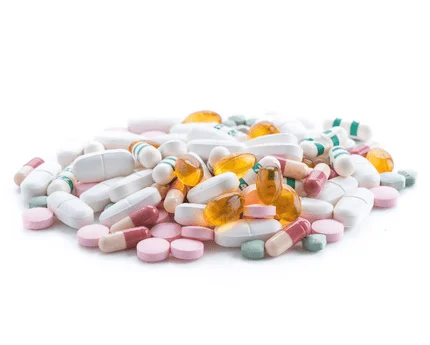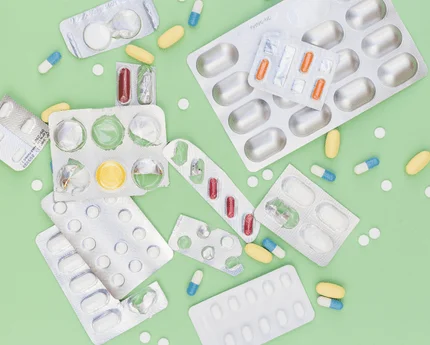
What are third party manufacturing pharma and contract manufacturing? These two company models hardly differ from one another. Pharmaceutical companies that use third-party manufacturing receive drugs bearing their own brand name from a manufacturing business. The manufacturing company in India produces the medicines in a predetermined quantity at the appropriate time. Small to medium-sized businesses frequently select manufacturing services from third parties. There are no restrictions or deadlines with this kind of manufacturing organisation. The pharmaceutical business in India contracts with a manufacturer to have its drugs made under specific guidelines. For instance, they request raw materials, packaging materials, and other items pertinent to the product. Only the maker puts it together. Additionally, a contract between the manufacturer and the business requires the manufacturer to supply the premium product by a specified date. The largest and most prestigious pharmaceutical companies typically use these types of manufacturing services. Benefits of using Indian third-party pharmaceutical manufacturing Choosing third-party pharmaceutical manufacturing businesses has many benefits. Following are a few of them: • It gives small businesses opportunities. Without making any financial investments in the infrastructure and facilities used for manufacturing, they can launch their own business. • You don’t need a lot of land to start a business. • Because there won’t be a need for labour in the production sector, you require fewer labour. You’ll save a tonne of money by doing this. • You will be given the choice to include a variety of goods under your brand name. Benefits of choosing contract manufacturing businesses Joining contract manufacturing will benefit you in a number of ways. The following are some benefits of funding a contract manufacturing business: • Contract manufacturing will assist in lowering manufacturing costs. The drugs won’t need to be made by you on your own. • You’ll have more time to focus on other aspects of your business, like branding and marketing. • You will be able to see the technological approach through contract production that is not achievable through your own manufacturing. • You’ll need fewer materials and funds. If you are new to this industry or run a small pharmaceutical business, you won’t experience the difficulties that are typically encountered because of a lack of funding. Contract manufacturers have a wealth of resources that they can use to improve your goods. Your specific requirements and desires will, however, determine whether you want to engage with contract manufacturers or third-party manufacturing organisations. For pharmaceutical organisations, carrying out a significant amount of activities internally can be very challenging at times. Therefore, they require affiliation with contract or third-party pharmaceutical production companies, a model that is extremely profitable. Being associated with these businesses involves more than just the production or packaging of the product; it also entails product creation, testing, etc. Before selecting the contract and pharmaceutical third-party manufacturing services, keep the following in mind: A pharma company can use the assistance of PCD Pharma and numerous other services to expand more quickly. Manufacturing services, like the PCD pharma franchise, can aid in business growth at a quicker rate. Make sure the business with which you are entering into an agreement is capable of supporting your company’s expansion. A complete set of process development, production, testing registration, etc. should be included. It should be a respectable and competent business that can provide your pharmaceutical products of the necessary quality at the predetermined time. Any unethical conduct on the part of the manufacturer could harm your business. As a result, after a thorough investigation, you should select the manufacturing company. Conclusion Finally, whether a corporation needs contract manufacturing services or a third-party pharmaceutical manufacturer depends on its needs and requirements. However, companies that are new to the pharmaceutical industry and want to launch a small business can benefit greatly from using these services.

Third-Party Manufacturing Pharma Company in India Understanding the Methods Used by Third-Party Manufacturing Pharma Companies in India to Produce High-Quality Goods The manufacturing facilities frequently struggle with the need to reduce manufacturing costs while ensuring that their potential clients receive the greatest pharmaceutical products on the market. As a result, many industrial facilities are considering the sensible choice of enrolling in a third-party company. The pharmaceutical corporations that outsource their manufacture in Baddi, Himachal Pradesh, each have their own unique certified vendors for manufacturing. They have a cutting-edge production facility where they can produce high-quality goods with good quality assurance that are beneficial to both businesses and people’s health. Process of Manufacturing as the third party CONFIRMING ORDER AMOUNT AND COMPOSITION: The order quantity and product composition must be validated before the third-party contract manufacturing procedure may start. The minimum order quantities for the composition must be changed while determining the order quantity. The MOQ for tablets and capsules is typically 500 to 1000 boxes or 50 000 to 100 000 tablets. Verify the manufacturer’s approval for that composition while confirming. QUOTATION RAISED: After deciding on composition and order quantities, the following step is to create a quotation that includes all of the costs you will incur. The purchase order is another name for this (PO). It includes the price of the goods, the cost of the packaging, and any securities (in the case of smaller batches). Included are any additional costs related to the manufacturing process. FINALIZE THE ARTWORK: Complete all registration requirements as specified by the Manufacturer, then complete the design artwork. Important points to keep in mind when you complete the artwork: – Verify the brand name on the carton and foil – Examine the packing information, the composition, and the manufacturing specifics – Verify the design and color scheme – Verify the company name, logo, and address on the box and foil for Marketed By. Important DOCUMENTS: The registration document of the firm or company may also be required in addition to the drug license and GST number, which are the two primary requirements. The regional Food and Drug Administration assigns DL. One sort of DL is for retail, and the other is for wholesale. The Government of India issues GST numbers, which are necessary for third-party manufacturing. Rarely are extra documents needed, such as a certificate of non-resemblance. MANUFACTURING AND DELIVERY OF PRODUCTS: Good Manufacturing Practices-certified. GMP is a system that ensures the product is consistently manufactured and inspected in accordance with the quality requirements. The GMP, which addresses every area of production from the raw materials to the hygienic employees, must be followed while manufacturing. Every time a product is created, the right process must be followed at every stage. Additionally, it is essential to follow the quality control and standards established by the WHO (World Health Organization) to guarantee that goods are manufactured and managed in accordance with the norms. You will receive a quote detailing the specifics of product manufacture after the goods are made. Following the filing of the necessary paperwork and the clearing of the accounts, the goods will be forwarded by the chosen transporter. There are many benefits to manufacturing under a private label in the pharmaceutical sector. One of the main advantages of using a third-party manufacturer is that you can begin producing your goods even if you lack the necessary funding to do so. Concept of Third-Party Manufacturing In this situation, a pharmaceutical producer acts as a service provider, using his resources (such as man and machine) to produce the brands that have been trademarked in the name of a marketing firm. The manufacturer’s name and address are printed on the product as well as the name and address of the marketing business. To put it another way, third-party manufacturer pharma businesses in India deal with goods produced by others under your own brand name. It is becoming common to launch pharmaceutical items without owning a manufacturing facility, allowing one to place a strong emphasis on product sales. Contract manufacturing is another name for third-party manufacturing. But knowing the differences and similarities between this marketing jargon makes all the difference. Contract manufacturing, loan license, and third-party manufacturing Third-party manufacturing and contract manufacturing are practically equivalent and can be used interchangeably. However, there is a theoretical distinction between the two terminologies. The term “third-party manufacturing” is used when a business obtains produced goods with its own brand name in a certain quantity and on schedule, such as a one-time order of 5000 boxes. In the event of contract manufacturing, a business obtains a produced good under certain terms and circumstances, which entails providing all necessary components for the production of the good, such as raw materials, excipients, packaging materials, dies, etc. It simply has to be produced by the manufacturer. It has a delivery deadline commitment. Regarding Loan Licensing, one may begin their own manufacturing in a licensed manufacturing facility that has already been granted permission. You hire a specific area in a permitted manufacturing facility to create your own line of branded goods. The firm name that will be displayed here under “marketed by” and “produced by” will be your own, together with information on the manufacturing facility that you are renting. For the purposes of this rule, a loan license is defined as “authorization which a licensing authority may issue to an applicant who does not have his or her own provisions for the manufacture but who anticipates using the manufacturing facilities owned by a licensee in form 25 or in form 28, as the case may be.” under the Drugs and Cosmetics Rules. As a result, it is comparable to third-party manufacturing, albeit with few differences. You can utilize “marketed by address” and “produced by name of your company” in loan licensing. Below are a few more distinct advantages that have been explained, including: helpful for both the service provider and the owner: Contract-based employment is typical for many businesses engaged in third-party manufacturing.

India tops exporting generic medicines According to Union Minister of State for Chemicals and Fertilizers Srikanta Jena, India leads the globe in the export of generic medications worth Rs 50,000 crore, and the Indian pharmaceutical industry is today one of the largest and most sophisticated in the world. As of right now, the nation exports goods to more than 200 nations, including the highly controlled markets of the US, Europe, Japan, and Australia. The majority of India’s $8 billion worth of medicine exports in 2008–09 went to the US and Europe, followed by Central and Eastern Europe, Latin America, and Africa. With a current market value of Rs 1 lakh crore, the Indian pharmaceutical sector has made significant strides in terms of infrastructure development, technology, and human resource management with a wide range of goods. It has established its footprint and demonstrated a willingness to thrive in a changing climate Mr Jena was present to officially introduce the Jan Ausadhi Abhiyan, a national initiative to ensure that all people have access to generic medications. Currently, the nation is ranked third globally in volume and fourteenth globally in value. The industry today produces large quantities of pharmaceuticals from all the main therapeutic areas that require complex production techniques. “In facilities that adhere to Good Manufacturing Practice (GMP) and WHO standards, formulations in a range of dosage forms are produced. These have been made possible by highly qualified technical and scientific personnel as well as innovative process development work “Mr. Jena added that the Department, making a statement. Investments made in this aim might provide enormous economic and social benefits, which could help India create more than 500,000 high-paying employment for its youth and offer the nation low-cost treatment for chronic and life-threatening diseases like malaria and tuberculosis, he continued. Speaking of the Jan Aushadhi campaign, Mr Jena stated that the government will make it easier to establish “Jan Aushadhi” Stores where unbranded, high-quality generic medications could be purchased. Any product, especially one that is a medication, that lacks a trademark is referred to as generic. For instance, “paracetamol” is a chemical component that is present in numerous branded painkillers and is frequently offered as a generic drug on its own. The campaign also includes a component for raising awareness through education and publicity so that the public is aware that the inexpensive generic medications are equivalent in strength and efficacy to their branded pricey counterparts. The nationwide drive to ensure that generic medications are accessible to everyone was initiated by Orissa, the fifth state in the nation and the first in eastern India. Along with the Red Cross State Headquarters and district headquarters hospital Khurda, the stores have been set up at Capital Hospital. According to Mr Jena, generic drug stores will soon be created in all 626 district headquarter hospitals across the nation, and they will gradually expand to subdivision and block hospitals as well. States like Punjab and Rajasthan have advanced the campaign extension quickly and have opened up to 30 outlets as of right now. Each business would receive a one-time assistance payment of Rs 2.5 lakh for stock management and acquisition. He promised that sufficient quantities of medications would be provided.

0